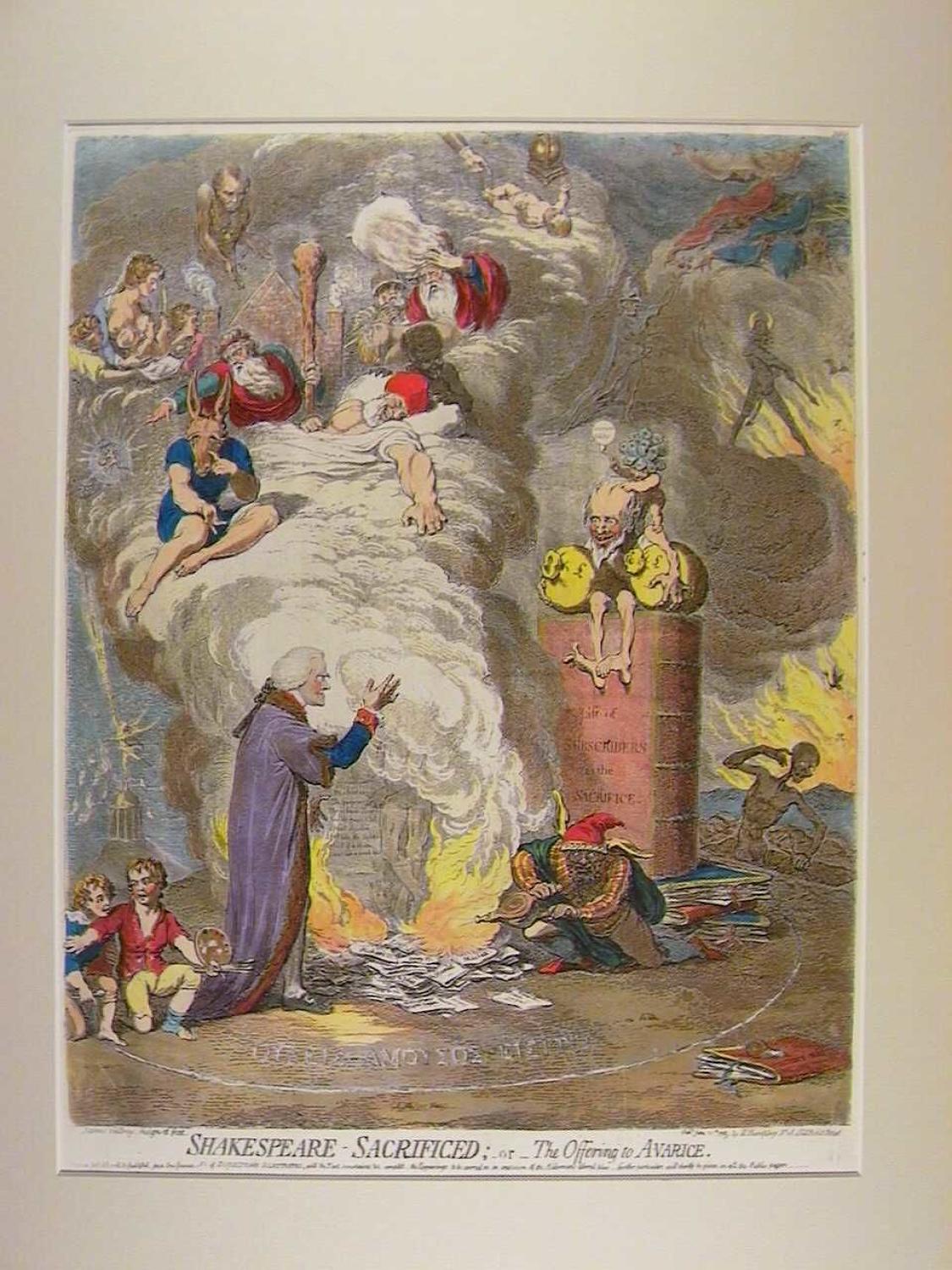
Mostlymaps |
Tel: +44 (0)1497 820539 Email: info@mostlymaps.com Web site: https://www.mostlymaps.com/ |
|
Code: 46591
Author: Gillray, James
Publisher: Henry G.Bohn
Date published: 1849 circa
Overall size in sand mount 53.5cms x 66 cms. Image size 382mm x 493mm.Copper engraving with later hand colouring. For much of the eighteenth century, English patricians collected Old Master paintings by European artists, virtually ignoring their own native painters. To address this slight and to create a school of English history painting, John Boydell, printseller and engraver, undertook a campaign to commission British artists to paint works on Shakespearean themes. The project was to be funded by the sale of prints engraved after those paintings, and ultimately assembled in an illustrated edition of Shakespeare. The first group of thirty-four paintings by eighteen artists went on view at Boydell's Shakespeare Gallery in May 1789; the first one hundred engravings were issued in a set of nine volumes in 1802. Unfortunately, war with France ended the export market for the Shakespeare engravings and led to Boydell's ruin. Gillray was not invited to engrave any of the commissioned paintings, and he exacted his revenge in this print. Alderman Boydell is seen kneeling before an altar where copies of Shakespeare's plays are consumed by fire, fanned by a fool; within the rising smoke, which obscures a statue of Shakespeare, are figures from paintings by Reynolds, West, Fuseli, Northcote, Barry, and Opie, commissioned by Boydell. Gillray implies that Boydell was motivated purely by Avarice, here a strange gnome who, perched on a bound volume of subscribers' names, clutches two moneybags. Vanity, blowing a bubble of Immortality, perches on Avarice's shoulder. Gillray also takes a swipe at the Academy by including, in the left foreground, a little boy, palette and brushes in hand, who prevents a second child, with an engraver's burin, from entering the hallowed circle of the Royal Academy (the Greek words within, which translate as "Let no stranger to the Muses enter
